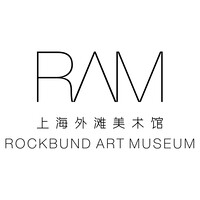Rockbund Art Museum, the leading contemporary art institution in Shanghai, is pleased to announce the appointment of X Zhu-Nowell as Artistic Director starting February, 2023. Liu Yingjiu assumed the role of Director in January 2023. These new appointments follow the departure of Larys Frogier, who will be leaving the institution after an extraordinary tenure as Director for over a decade.
Chinese-born, New York-based X Zhu-Nowell is a dynamic presence in the field of contemporary art and has received international acclaim for their daring support of artists and innovative curatorial projects, which foreground experimentation and intervention. Zhu-Nowell comes to the Rockbund Art Museum from the Solomon R. Guggenheim Museum in New York, where they have worked as a curator since 2014. RAM believes that Zhu-Nowell’s intellectual rigor and imaginative approach to presenting art and artists makes them one of the most exciting curators working today, and RAM are delighted to bring their vibrant vision and leadership to the organization, especially at this time, as the museum continues to expand its focus both regionally and internationally.
On their new appointment, Zhu-Nowell remarked, “Now is a moment of renewal, reinvention and reopening at RAM. At this critical moment in the museum’s history, I am excited to take on the challenges and creative possibilities of being its Artistic Director. Since its establishment in 2010, RAM has not only been the beating heart of contemporary art in Shanghai, but also maintained a legacy of radical projects, always against a shifting backdrop of social and political climates, which the team and I are eager to preserve and continue. Together, we are ready to take on the ambitions and contradictions of our time through initiating new modes of research, exhibition making, and public engagement, which will expand how the museum amplifies the voices of artists with diverse creative perspectives.”
Zhu-Nowell’s 2023 exhibition program launches in March and features six exhibitions of women artists from the Asian diaspora: WangShui, Evelyn Taocheng Wang, Tosh Basco, Diane Severin Nguyen, Tan Jing, and Shubigi Rao. Each artist has been commissioned to create new works for their solo exhibition. The six exhibitions will overlap throughout the year. Different artists’ visions will weave in and out of each other, and the viewers’ experience of the space will change with each encounter, encouraging return visits and more social interaction with the space. Zhu-Nowell comments: “This year I’ve invited six artists to breathe a new spirit into the RAM. I’ve learned so much from each of them and I believe their diaspora points of view reframe how we see ‘peripheral’ perspectives. Through these projects, I hope to spark new understandings of terms commonly thrown around in art contexts, such as place, personhood, geography, nationality, and identity.”
Liu Yingjiu joined RAM in 2009 as its founding curator and was been Deputy Director from 2011. Working collaboratively with the local governmental organizations, he successfully turned the museum into a legally recognized non-profit entity. With a degree in museum studies and nearly twenty years’ experience, he engages in questioning and reinventing the boundaries of museums in particular Chinese contexts.
About Rockbund Art Museum (RAM)
Inaugurated in 2010, RAM is a contemporary art museum located on the historic Bund in Shanghai. The museum’s landmark Art Deco building from 1932 was originally one of the first modern museums established in China. In considering what it means to be a contemporary art museum in the 21st century, RAM explores the importance of “archipelago thinking”: connecting to artistic culture across Asia and beyond to gain richer perspectives on today’s challenges, practices, and networks within contemporary art. With a strong reputation for an innovative curatorial approach, RAM experiments with different models of what an art project can be, from research to alternative learning programs, from exhibition-making to unexpected performative formats. By supporting bold contemporary art practices, RAM recognizes local histories while responding to global art challenges and social change.



